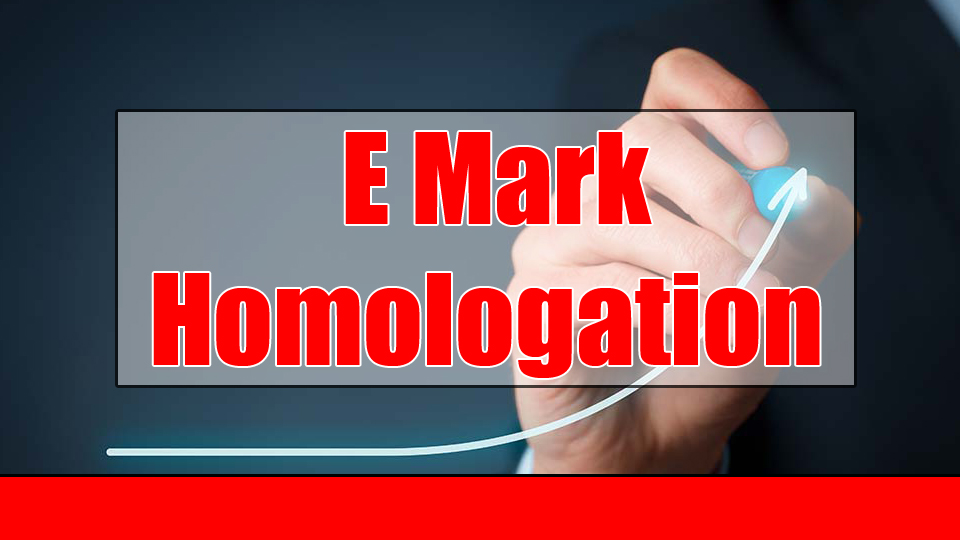According to the European Economic Commission regulations and the provisions of EU directives, in order to enter European market, cars, motorcycles and a variety of components and systems must be certified to meet the basic requirements of traffic safety and environmental protection. E-Mark and e-Mark are the European conformity marks issued by the transport sector, indicating that the products comply with relevant laws and regulations or directives. Vehicles and related products need E-Mark or e-Mark certification to be legally sold in Europe.
In Europe, vehicle certification system consists of the following three parts:
• EU certification (referred to as EC): the e-Mark, to certify products in accordance with the requirements of EC Directives.
• Certification of Economic Commission for Europe (referred to as ECE, United Nations agency): the E-Mark, to certify products in accordance with ECE regulations.
• National Certification
For the safety of motor vehicles and vehicle parts and sold in the European market must have a corresponding security certification mark shows signs of E. signs and e certification. Our company has obtained the certificate for numerous clients, has considerable experience in the technology Overall vehicles including: Cars, motorcycles ,Including System: Braking systems, emissions, noise
Including parts: Tires, lamps, rear-view mirrors, seat belts, automotive electronic products, children’s chairs, made of safety glass, brakes, car refrigerator, Car DVD warning signs, etc.
E signs from the Economic Commission for Europe (Economic Commission of Europe. listed ECE) promulgated regulations (Regulation). Currently 28 countries, including the European ECE, in addition to the EU member states, including Eastern Europe, Southern Europe and other non-European countries. ECE is not mandatory standards. Member States can be applied to ECE regulations, and the extension of national legislation can be.
E signs the certificate system components and parts and products. E signs obtain certification of products, especially through the well-known test organs tested products to the EU countries is to be accepted by the market. E-certified products are common signs of domestic tires, safety glass, auto bulbs, triangular warning signs, and automotive electronic products. E. Certification testing generally is the implementation of the ECE member technical services. E ECE member signs the certificate issuance agency is a government department.
e-Mark is based on EU Directive and is a safety certification mark which the European Commission require that member states apply it on motor vehicle, parts and systems. Testing organizations must be a technical service organization of EU member, and the issuing institution is the government transport sector of the EU member. Products certified by e-Mark will be recognized by all EU member states.
e-Mark logo is a rectangular frame, for vehicles whether moving or stationery, which is for auto products in vehicles, such as: car charger, car lamp / flashlight, car air pump, car massage / heating cushions, car fans, car kettles, car refrigerator, car coffee maker, in-car TV / stereo, electric car jack, car cleaners, car power tools and so on.
National Certificate: Specific requirements depending on the country and its products may be different. European vehicle certification system is based on different European countries having reached a mutual recognition of certification bodies. All member states must publish its issuing authority, and access to the name and address of the authorized testing agency. EC system and ECE systems are very different on the point whether member state would accept the issue of a statute.
When an EC directive come into effect, all states must accept any certificate issued by a member state. When a clause become ECE regulation, each member state has the right to decide whether to accept the rules or not, even after announcing the acceptance, its government can still change its mind, to stop acceptance of the regulation. Member states need to inform Secretary-General of ECE about the stop-decision, 12 months after the termination takes effect.
